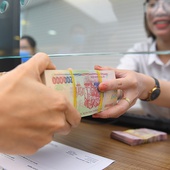Getting Started as a Fresh Expat (Fresh-pat) in Saigon
Saigon, officially known as Ho Chi Minh City, is an extraordinary place. With a rich history, vibrant culture, and endless opportunities, Vietnam's busiest hub continues to be a top destination for expats in 2025. And who could blame them? It's an incredible place to live.
When moving to a new country, it’s essential to get settled. This means securing accommodation and a job, learning to navigate the city, and finding fun activities to enjoy.
The Basics
Upon arrival in Saigon, staying connected is crucial. One of the first things you should do is acquire a local SIM card. While you can purchase Vietnamese SIM cards at the airport, it's usually more economical to buy one in the city. Local convenience stores and major telecom outlets are good spots to find SIM cards. The most popular and reliable providers are Viettel, Mobifone, and Vinaphone. Getting your SIM card typically involves a one-time fee, choosing a plan, and activating it, which the store clerk will assist you with. To manage your account effectively, download your provider's app and you're set!
%20in%20Saigon.jpg) Photo: tripadvisor.com.vn
Photo: tripadvisor.com.vn
In Saigon, cash remains king. The local currency is the Vietnamese Dong (VND), and as of 2025, the exchange rate is approximately USD 1 to 24,300 VND. If you run low on cash, don’t worry—international credit and debit cards are widely accepted. When using an ATM, select either "checking" or "savings" to avoid additional fees.
It helps to have some US dollars handy when you first land, particularly for visa fees. You can exchange some money at the airport for taxi fare, but it is advisable to avoid exchanging large amounts there as the rates may not be favorable. An insider tip: around Ben Thanh Market in District 1, there are numerous exchange offices and gold shops that offer competitive rates!
To Vietnamese or Not to Vietnamese?
Learning Vietnamese can be quite challenging for English speakers, but it’s not necessary to be fluent before arriving in Vietnam. However, picking up a few basic phrases can significantly enhance your experience. Apps like Duolingo and Babbel are excellent resources. Familiarize yourself with essential greetings and polite expressions: thank you, hello, goodbye, numbers, etc.
%20in%20Saigon1.jpg) Photo: saostar.vn
Photo: saostar.vn
Before you leave your home country, consider downloading an offline Vietnamese dictionary on Google Translate. The default Translate app on iPhones is also very handy.
The Weather (It’s Getting Hot in Here!)
Saigon experiences two main seasons: the dry and the wet. The dry season, which is sunny and warm, lasts from December to April, offering around 12 hours of sunshine daily. The wet season, running from May to November, can be unpredictable with higher temperatures and sudden heavy rain. Always be prepared for rain—carrying a poncho is a smart move to stay relatively dry during unexpected downpours.
%20in%20Saigon2.jpg) Photo by @Nguyen Duc Dinh
Photo by @Nguyen Duc Dinh
During the wet season, roads can become slippery, so exercise caution regarding localized flooding. The locals are seasoned pros at driving in these conditions, so observe them and adjust your driving behavior accordingly.

"Welcome to My Crib" - Finding Accommodation
Arguably one of the most stressful things about moving to a new country is finding the perfect home. But there's no stress here!

"Show Me the Money" - Finding a Job in Saigon
Unless you speak Vietnamese, the job pool for foreigners in Saigon is limited.

Money Matters - Getting A Bank Account
Once you've found a job, you'll need a bank account to hold all your hard-earned cash.








